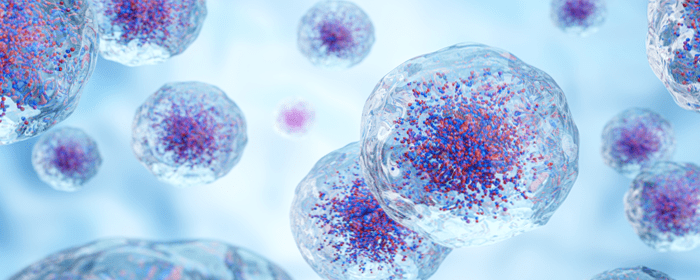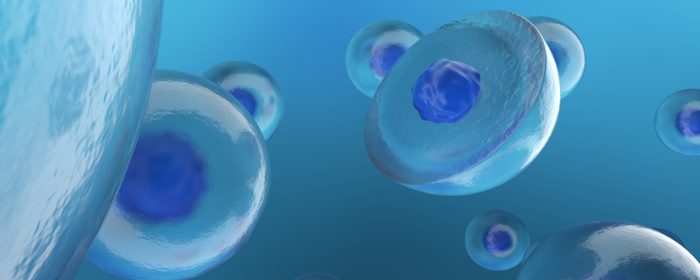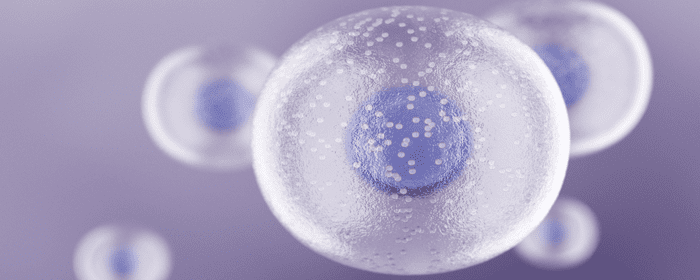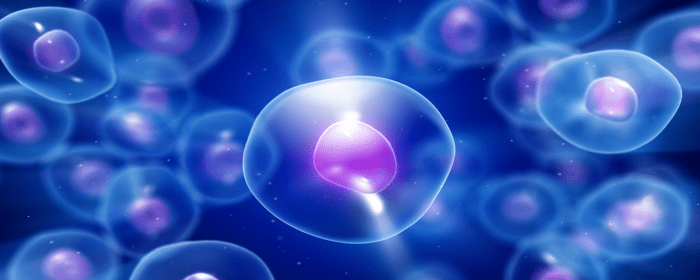
by admin | Mar 22, 2023 | Stem Cell Research, Mesenchymal Stem Cells, Stem Cell Therapy
Currently, it’s estimated that over 1.3 million people in the U.S., and 10 million people around the world, are living with inflammatory bowel disease (IBD). IBD is a chronic and recurrent disease characterized by inflammation of the tissues of the digestive tract[1]. Two specific diseases included under the term IBD include Crohn’s disease (CD) and ulcerative colitis (UC).
While the exact cause of IBD has yet to be determined, research seems to suggest abnormal activation of the immune system, genetic susceptibility, and altered intestinal flora resulting from mucus barrier defects play some type of role in the pathogenesis of this disease. Currently, a complete IBD treatment or cure exists. Recent research has also demonstrated that adults with IBD are more likely to suffer from other chronic conditions, including diabetes, arthritis, lung cancer, and heart disease[2].
Clinical trials using stem cell therapy have demonstrated promising results for the potential treatment of IBD, including long-term remission in some patients.
In this review, Zhang et al. review the upcoming stem cell transplantation methods for clinical application and the results of ongoing clinical trials exploring the use of stem cell transplantation as a potential treatment for IBD.
Specific stem cells, known as hematopoietic stem cells (HSC), have been shown to be particularly effective when used as a therapeutic treatment. HSCs are isolated from blood, bone marrow, and cord blood that migrate directly to damaged mucosal tissues. Initially used in patients with IBD because of other hematologic indications, including leukemia and non-Hodgkin’s lymphoma, the use of HSC therapy (HSCT) demonstrated improvement in intestinal lesions. Further study using HSCT showed that some patients with UC and CD demonstrated sustained clinical and endoscopic improvement. The authors point out that while these limited clinical trials have demonstrated promising results, the observed risk of relapse currently prevents HSCT from being classified as an effective treatment and calls for larger samples and longer-term efficacy observations.
Another stem cell treatment currently being evaluated for the treatment of IBD is the use of mesenchymal stem cells (MSCs). When injected intravenously, MSCs demonstrate the ability to reach the injured area of the intestine, colonize mucosa to control inflammation, improve microcirculation, and repair damaged tissues. A systematic review conducted by Lalu et al. found that the use of MSCs did not show significant side effects and was a relatively safe therapeutic treatment option.
Zhang et al. conclude that the significant advance in stem cell research made over the past twenty years has made them a promising therapeutic option for the treatment of IBD. Although a limited number of clinical trials have confirmed the efficacy of specific stem cells, specifically HSC and MSCs in IBD, the authors point out that the current treatments need to be improved and further research must be conducted in order to fully understand the complexity associated with the condition.
While this review focuses primarily on the use of HSC and MSC, Zhang et al. call for continued preclinical exploration of other cell therapy methods with the goal of improving the quality of life of IBD patients.
Source: “Stem Cell-Based Therapies for Inflammatory Bowel Disease – PMC.” 31 Jul. 2022, https://www.ncbi.nlm.nih.gov/pmc/articles/PMC9368934/.
[1] “Inflammatory bowel disease (IBD) – Symptoms and causes.” https://www.mayoclinic.org/diseases-conditions/inflammatory-bowel-disease/symptoms-causes/syc-20353315.
[2] “People with IBD Have More Chronic Diseases – CDC.” https://www.cdc.gov/ibd/features/IBD-more-chronic-diseases.html.

by admin | Mar 17, 2023 | Mesenchymal Stem Cells, Stem Cell Research, Stem Cell Therapy
An estimated 100 million people in the U.S. have some form of acute or chronic liver disease. Many factors, including viral and bacterial infections, substance abuse, diabetes, and fat deposition, contribute to conditions that harm the liver.
Left untreated, these liver conditions often progress to more serious diseases that often require a liver transplant. Historically, a host of issues – including a low number of tissue donors, a high rate of tissue rejection, medicine-induced immunosuppression, and high associated medical costs – has limited access to, and the effectiveness of, liver transplantation as a viable solution.
Considering the limited options available for the successful treatment of liver disease, identifying alternative treatment options has become very important. Recently, the potential treatment of acute and chronic liver disease using regenerative medicine, also known as stem cell therapy, has garnered an increased amount of attention.
While a number of different types of stem cells have been used to treat liver disease, mesenchymal stem cells (MSCs) have been the most studied and successful in reducing the need for liver transplantation.
MSCs have been used to repair liver tissue through a number of different methods, including co-culturing with HSCs to reduce and prevent the progression of fibrosis and the proliferation of disease-causing cells through the production and secretion of specific inflammatory factors.
Treatment of liver disease with MSCs has also been shown to increase endothelial precursor cell proliferation while suppressing apoptosis in LSECs and hepatocytes, and by lowering serum transaminase enzyme levels. MSCs have also been shown to compensate for hepatocyte reduction resulting through liver-disease induced apoptosis by differentiating into hepatocyte-like cells.
Considering the observed role of MSCs in liver tissue repair and regeneration, Hazrati et al concluded that the use of MSCs induces the repair and regeneration of liver tissue through immune response modulation, differentiation into HLCs, increased proliferation and decreased apoptosis in hepatocytes, increased apoptosis and reduced function of HSCs and improve the function of LSECs.
The authors also point out that, as of publication, there were 61 active clinical trials using MSCs to treat a variety of liver-related diseases, including cirrhosis, fibrosis, and liver failure. The associated advantages of MSCs in the treatment of acute and chronic inflammatory liver disease include ease of isolation and culture, pluripotency, immunomodulatory and anti-inflammatory properties, extracellular signaling, and their ability to differentiate.
The authors conclude this review by summarizing the observed benefits of using MSCs, and specifically MSC-EVs to improve liver function and support the repair of damaged liver tissue. The authors also point out that while there have been numerous clinical trials using MSCs to treat liver disease, there have been no clinical trials performed on the use of MSC-EVs and call for additional research to investigate the long-term effects of treating liver disease with MSC-EVs.
Source: “Mesenchymal Stromal/Stem Cells and Their Extracellular Vesicles ….” https://www.frontiersin.org/articles/10.3389/fimmu.2022.865888/full.

by Stemedix | Mar 13, 2023 | Uncategorized
Diabetes is a chronic condition that can progress in severity if left unmanaged. In many cases, untreated diabetes can lead to severe nerve pain. When you suffer from diabetic nerve pain, you may find yourself looking anywhere and everywhere for some relief. Find out how you can address your diabetic nerve pain.
What Causes Diabetic Nerve Pain?
Also known as diabetic neuropathy, diabetic nerve pain is the result of unstable blood sugar levels. When you have diabetes and allow your blood sugar to rise continuously, it can do damage to the nerves that send signals throughout your body.
The blood flow to these nerves is reduced, and they are no longer able to function properly. This leads to nerve pain, most often in the hands, feet, and legs.
Treating Diabetic Nerve Pain
If you develop diabetic neuropathy, there are several treatment options that can alleviate your pain. Learn more about each of these treatments below:
Blood Sugar Maintenance
The best way to stop nerve pain from progressing is by controlling your blood sugar. Practicing proper blood sugar maintenance and keeping your levels in a healthy range will stop the progression of neuropathy and prevent additional nerves from being damaged.
INF
INF, or intraneural facilitation, is another way to treat diabetic nerve pain. INF is an innovative treatment that does not involve any medications and is completely non-invasive. During INF treatment, blood supply is restored to the damaged nerves, alleviating pain and discomfort.
Medication
Sometimes, over-the-counter medication is the best way to relieve diabetic nerve pain. Medications like ibuprofen, acetaminophen, and aspirin can all reduce the severity of your nerve pain when used for short periods. In severe cases, prescription pain medications may be needed to provide comfort.
Physical Therapy
Another way to address diabetic nerve pain is with physical therapy. Certain exercises and stretches can relieve the discomfort caused by neuropathy. These exercises include swimming, walking, and other low-impact exercises.
Regenerative Medicine
Regenerative medicine is a developing field that aims to restore or replace damaged or diseased tissues. Diabetes is a chronic metabolic disorder characterized by high levels of blood sugar (glucose) due to the body’s inability to produce or properly use insulin.
One approach of regenerative medicine is the use of mesenchymal stem cells (MSCs) to replace damaged or dysfunctional cells in the pancreas that produce insulin. These cells can be derived from a patient’s own body (such as bone marrow or adipose tissue) or from umbilical cord tissue (Wharton’s jelly). Although more research is needed to optimize these approaches, several studies have shown promising results in using stem cells to generate new insulin-producing cells in the pancreas.
Diabetic Neuropathy Treatment
Are you struggling with chronic pain and discomfort due to diabetic neuropathy? Diabetic nerve pain can occur when blood sugar levels are not managed properly. To stop the progression of your neuropathy or to prevent nerve pain in the first place, you must keep your blood sugar under control.
Establishing a reliable medical team and having doctors whom you trust can help you manage your diabetes and keep your blood sugar at healthy levels. To learn more, contact a care coordinator today at Stemedix!

by admin | Mar 1, 2023 | Mesenchymal Stem Cells, Stem Cell Research, Stem Cell Therapy
Osteoporosis is a common bone disease that occurs as a result of the body’s inability to create new bone as fast as the body is losing bone. Characterized by progressively weakened bones and decreased bone density over time, osteoporosis often results in fractures of the wrist, hip, or spine.
Currently, it is estimated that 10 million Americans have osteoporosis and an additional 44 million have low bone density considered significant enough to increase the risk of developing osteoporosis. Recent studies indicate that roughly 50% of women and 25% of men over the age of 50 will break a bone as a result of osteoporosis[1].
While traditional methods of managing osteoporosis include medication, regular participation in weight-bearing exercises, and eating a healthy diet, the condition cannot be cured through these current approaches. Recently, regenerative medicine, also known as stem cell therapy, has drawn attention as a potential new approach to regenerate bone tissue and as a way to treat osteoporosis.
Specific stem cells, known as mesenchymal stem cells (MSCs), are widely considered to be the most promising of all stem cells for regenerative applications – primarily because of their anti-inflammatory, immune-privileged potential and less ethical concerns than other forms of stem cells.
In this review, Arjmand et al. consider all the currently known effects of stem cell-based therapies, including MSC-based therapy, in the treatment of osteoporosis. Several studies have confirmed the relationship between osteoporosis and a clear reduction in endogenous MSCs’ ability to proliferate, differentiate, and ultimately form new bone. Considering this, MSCs have been the most common type of stem cell investigated for the treatment of osteoporosis in both animal models and humans.
The authors point out several advantages of using MSCs in clinical models, including their accessibility and ease of harvesting, immunosuppressive outcomes, and ability to differentiate. Arjmand et al also highlight evidence that indicates MSCs to be effective in this application most likely as a result of their paracrine effects and their supporting regenerative microenvironment ability and not solely a result of their ability to differentiate. Considering these observed paracrine effects, the authors believe MSC transplantation could open a host of new opportunities for the treatment of osteoporosis.
This review concludes by calling for further studies into stem cell therapy as a potential treatment for osteoporosis specifically to understand the outcome and biodistribution of MSCs after transplantation and to further identify important bone loss signaling pathways and genes specific to each individual.
Source: “Prospect of Stem Cell Therapy and Regenerative Medicine in … – NCBI.” 3 Jul. 2020, https://www.ncbi.nlm.nih.gov/pmc/articles/PMC7347755/.
[1] “Learn What Osteoporosis Is and What It’s Caused by.” https://www.bonehealthandosteoporosis.org/patients/what-is-osteoporosis/. Accessed 1 Feb. 2023.

by admin | Feb 15, 2023 | Spinal Cord Injury, Mesenchymal Stem Cells, Stem Cell Research, Stem Cell Therapy
Spinal cord injury (SCI) often results in damage to the spinal cord or the nerves found within the spinal column. Currently estimated to affect over 17,000 new patients each year in the United States, with 81% of these patients being male, the most common causes of SCIs are motor vehicle accidents, falls, acts of violence, and sports/recreational activities.
Current SCI treatment methods are unable to support the regeneration of the spinal cord and often lead to permanent nerve damage that affects motor and sensory function. The nature of SCI injuries often leaves patients unable to function at pre-injury levels and results in significant impacts on issues related to physical, mental, and socioeconomic health.
As more is learned about the potential benefits of regenerative medicine in the regeneration and repair of damaged cells and tissue, mesenchymal stem cells (MSCs) have emerged as potential candidates for the therapy management of SCIs; primarily because of their ability to release bioactive factors, their antiapoptotic effects, ability to inhibit scaring, and their ability to produce angiogenic effects.
Fracaro et al.’s review provides information about the damage from primary and secondary events after SCI, traditional treatments, and results of pre-clinical and clinical trials examining the use of MSCs as an SCI-tissue regeneration strategy.
Before sustaining an SCI, a wide range of inflammatory cells – all except for microglia – are found in blood vessels and throughout the spinal cord. Upon injury, it is common to observe immediate neuronal and glial death at the site of the injury followed by the development of an inflammatory process in the vascular and medullary region; it is this secondary response that results in the deterioration of the spinal cord and a general worsening of the condition. In the weeks and months following injury, remaining neutrophils and lymphocytes are found in the intravascular region, inactivated microglia remain in white matter, and macrophages are found in gray matter.
Traditional SCI treatments have demonstrated an inability to completely regenerate nervous tissue. Most of these traditional treatment methods attempt to reduce side effects and protect injured nerve tissue. Commonly used SCI treatments frequently include decompression surgery to relieve pressure and reduce hypoxia and ischemia; intravenous application of methylprednisolone sodium succinate (MPSS) to inhibit lipid peroxidation; neuroprotective agents to reduce cell dysfunction and death; and electrostimulation as a way to inhibit inflammation and reduce secondary injuries.
Despite the different techniques mentioned above, cell-based therapy is the only promising treatment aimed at regeneration. Stromal cells, and specifically MSCs, have demonstrated the potential for self-regeneration, differentiation, and immunomodulation. Although research has yet to determine exactly how MSCs promote functional recovery after SCI, they are widely thought to work through secreting different factors and biomolecules. MSCs have also demonstrated the ability to reduce inflammation, which is a very common secondary event occurring after SCI trauma.
The authors conclude this review by pointing out that a better understanding of the regenerative effects of stromal cells in the nervous system is required in order for the future development of cell-based therapies for patients with SCI.
Source: “Mesenchymal stromal cells as a choice for spinal cord injury treatment.” https://www.oaepublish.com/neurosciences/article/view/3329.






 St. Petersburg, Florida
St. Petersburg, Florida
